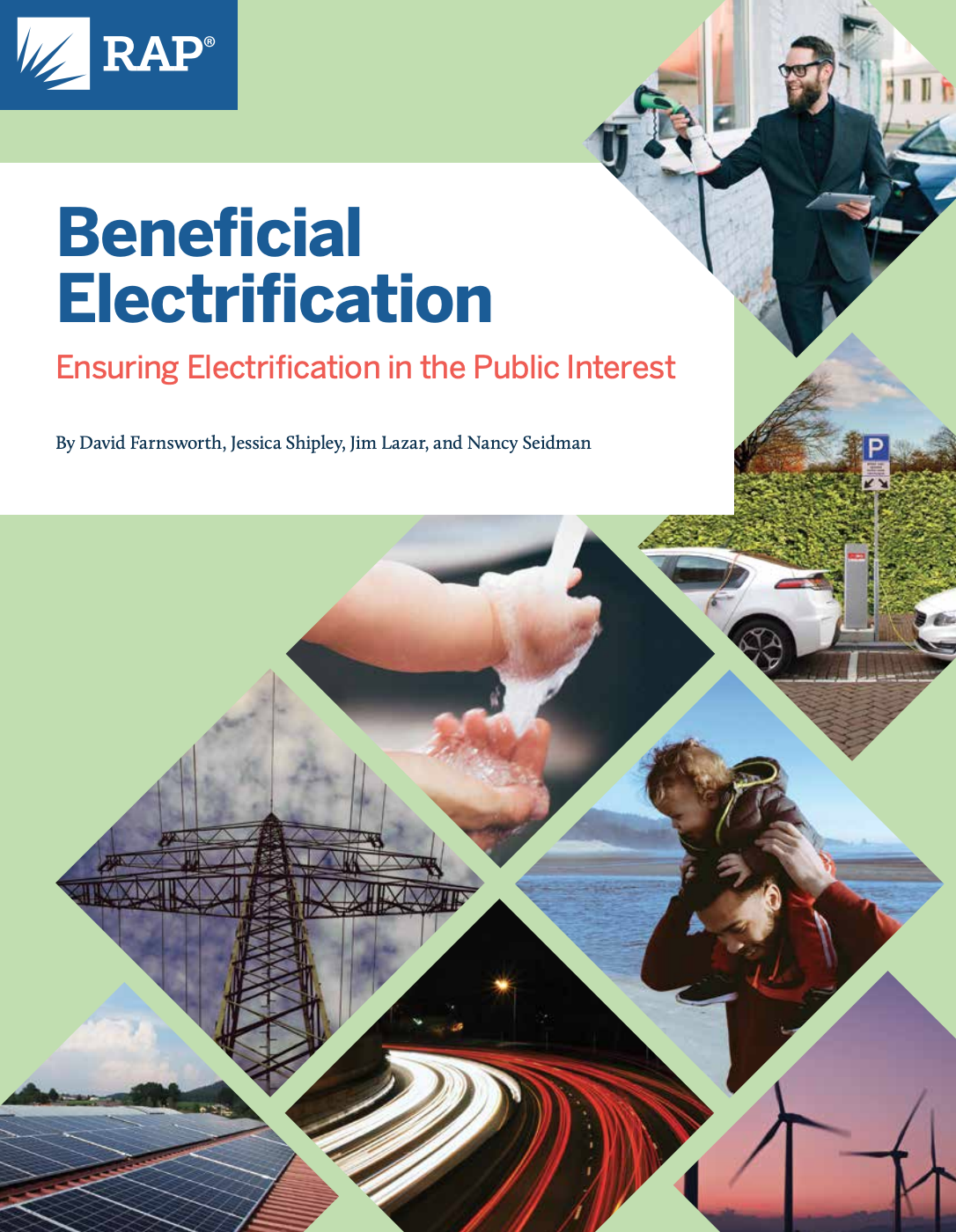Beneficial Electrification: Ensuring Electrification in the Public Interest explores policy and regulatory decisions that need to be made to accommodate innovations across the power sector that make it possible to electrify many energy uses currently fueled by heating oil, propane, and natural gas. The paper makes the case for what RAP calls beneficial electrification—in other words, electrification in the public interest.
The authors offer six principles that will help policymakers and regulators formulate and evaluate their electrification strategies to broadly secure the benefits. Finally, the paper looks at operational elements that states may want to consider as they move ahead with electrification.
Three other papers in this series feature pathways and no-regrets options for regulators to apply these principles specifically to electric vehicles, space heating, and water heating. Each paper lays out initial steps for regulators to establish programs, including standards and metrics to measure success. More specifically, these papers explore issues such as rate design to enable beneficial electrification; program design and implementation; relationships between beneficial electrification and energy efficiency and demand response programs; screening tests for beneficial electrification; and impacts on wholesale markets and vice versa.


